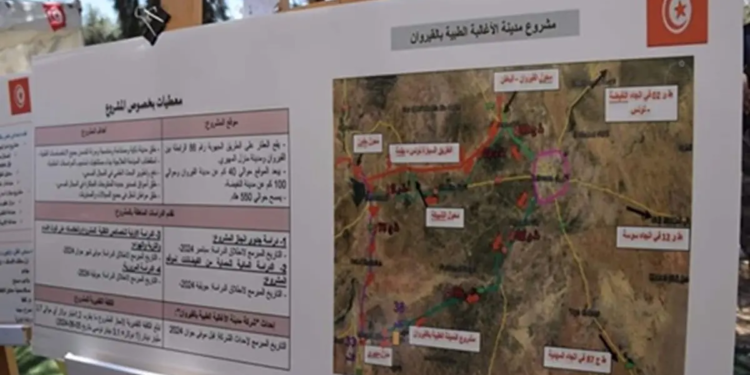During the presentation, Tuesday morning, of the finance bill and the 2026 economic budget, the head of government Sarra Zaafrani Zenzeri announced the launch, this November, of work on the new King Salman bin Abdelaziz university hospital in Kairouan.
This project, financed by the Saudi Development Fund, represents one of the most structuring hospital projects of the decade in central Tunisia. “This project will constitute, with the Aghlabid Medical City, an integrated platform for the development of health services in the center-west, and a pillar of the right to health and social justice,” Ms. Zenzeri declared to the deputies.
A synergy with the Aghlabid Medical City
The King Salman Hospital is designed as the first concrete pillar of the Aghlabid Medical City, a vast medical-university complex planned on more than 550 hectares in Menzel Mehiri.
According to initial studies, the City will bring together 14 specialized care centers, a military clinic, as well as training and research structures, for a total investment estimated at 3 billion dinars.
According to initial projections, the overall project is expected to generate nearly 200,000 direct and indirect jobs, between the construction phase and the future operation of the health establishments.
The government has clarified that technical studies of the Medical City are continuing, while construction of the university hospital is actually starting, paving the way for an integrated regional medical ecosystem.
Acceleration of the 2026 health plan
Ms. Zenzeri also indicated that several regional type B hospital projects will see an acceleration in 2026, citing in particular:
Sbitla, El Jem, Ghardimaou, Jelma, Makthar, Hafouz, Dahmani and Talla.
This dynamic is part of the government strategy to reduce regional disparities, with a more balanced distribution of health infrastructure across the territory.
Also read:
Kairouan: The future “Les Aghlabides” medical city will create 200,000 jobs








